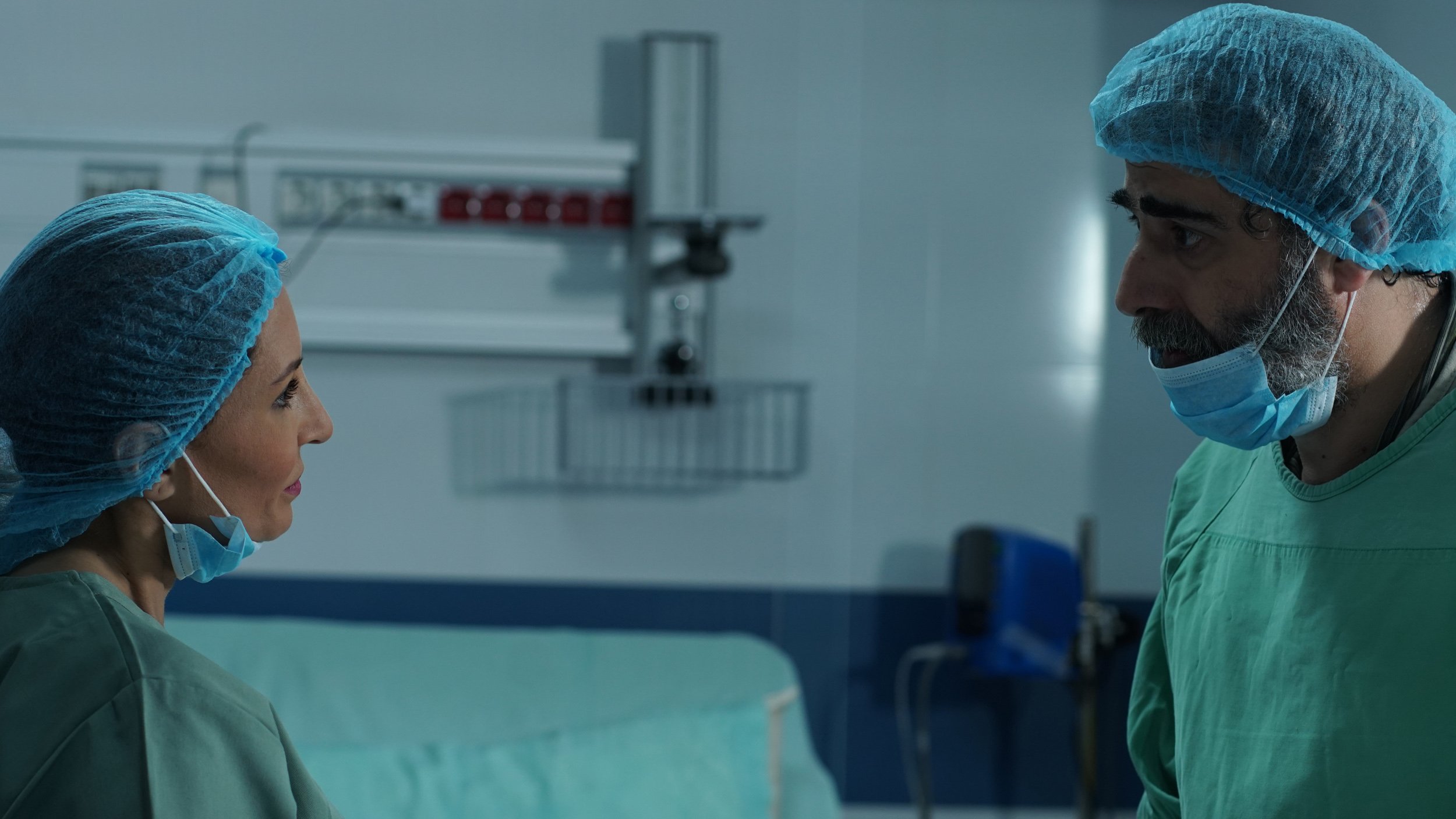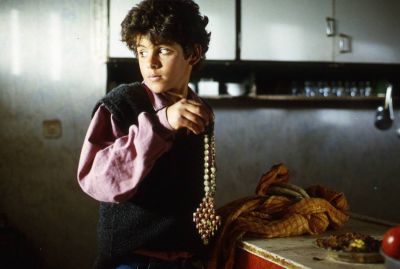
A still from "C-Section." (Courtesy of: Ziad Al Mazraany)
BEIRUT — Lebanese film “C-Section” sets a new record for Lebanese cinema. Only two days after its release on Netflix on Jan. 4, 2024, the movie secured the second position on the top 10 list of movies in Lebanon's Netflix chart. Three weeks later, it is still in the top five.
“Not a farce comedy, parody, or popcorn film. It’s rather a comedic narrative layered with drama, sending out stirring values and messages. That's what resonated with people,” says Isaac Fahed, who co-wrote and co-produced the film with Sam Lahoud.
“C-Section” unfolds in a private hospital, where two pregnant couples, from dramatically different socioeconomic backgrounds, find themselves sharing a post-partum room.
“The development of the script is inspired by the true, authentic Lebanese society. The stereotypes depicted in the film mirror those present in our society, including accents, mindsets and dialogues,” says Doris Saba, co-writer, line producer, assistant director and cast member of “C-Section.”
The class dynamics at play especially resonate amid Lebanon’s years-long economic crisis, according to Fahed.
“Us Lebanese have been in the crisis for so long. This film fosters a timeless connection with the audience,” he says.
A difficult birth
The avant-première of the film — which Fahed says he funded himself along with co-funder Fares Nasif and with the help of friends, was initially scheduled for Oct. 17, 2019, coinciding with the first day of the Lebanese revolution. The release was then abruptly canceled due to the widespread protests, resulting in the loss of all associated campaign costs.
 A still from "C-Section." (Courtesy of: Ziad Al Mazraany)
A still from "C-Section." (Courtesy of: Ziad Al Mazraany)
The team rescheduled the release for March 2020, but the onset of the COVID-19 pandemic forced another closure, causing the loss of the entire campaign once again.
The film saw its cinema release in December 2020, at one of the lowest points for Lebanon’s cinema market. Fahed estimates that the combination of the financial crisis and the pandemic restrictions led the cinema market to drop by 85 percent to 90 percent. The movie still attracted 30,000 viewers, but with a ticket priced at $2, the revenues were way below the production expenses.
Recognizing the limitations of the local cinema market, Fahed looked beyond Lebanon and targeted international cinemas, festivals and streaming platforms. The film made appearances in five festivals in Australia, Canada, France, Serbia and Croatia.
“Since the world is not familiar with the Lebanese film industry nor with the Lebanese language, distributing this film on global platforms was challenging,” Fahed says.
“If I just sent the trailer and the poster, they wouldn’t have bought it. But when they saw the film, there were many layers in the film that made them change their minds. The promotion of kindness, tolerance and the idea of a better tomorrow, all connected with them,” he says.
‘Rebirth’ on Netflix
The film made its debut on Netflix on Jan. 4, nearly four years after its initial cinema release.
Fahed, describing it as a "rebirth of the film," said that the partnership with Netflix significantly expanded the movie's reach and visibility, attracting a new wave of global viewers and engagement.
“I hope this film will open doors for future opportunities for Lebanese films in the international market,” says Fahed.
“The Lebanese film industry operates independently, lacking a cohesive structure or active syndicate supported by the government. The absence of a steady industry support system means individuals have to navigate funding challenges alone, like securing sponsors and financers,” he adds.
Promoting Lebanon
“C-Section” was shot in Tripoli, Zgharta and Koura in northern Lebanon.
“I’m from the north,” says Saba. “People up there love arts and cinema, so I never faced challenges when shooting short films up there. During discussions about the film and its budget, I suggested to producers Isaac Fahed and Sam Lahoud that we shoot the film in the north. Spending the budget there would give us more results than if we were to spend it in Beirut.”
Filming “C-Section” inspired Saba to co-create “Film Friendly Lebanon,” a local initiative that focuses on preparing Lebanese towns to welcome a variety of productions, from films to video clips, and teaches them to effectively support the process of shootings and productions.
"Certain towns and villages, often marginalized, have considerable richness in terms of talent or locations,” says Saba. “Through this initiative, tourists will visit these towns in a few years to experience the settings where some films were shot."


